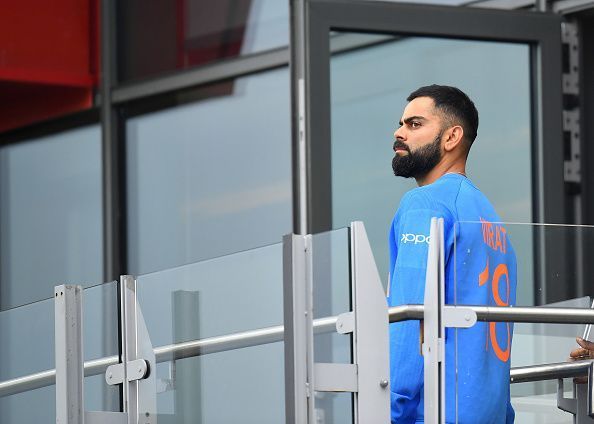
Have India missed a trick by continuing with Virat Kohli as T20I skipper?
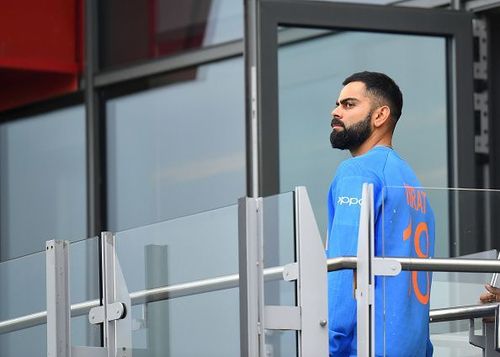
A leader innovates, inspires and brings glory to his team. Every successful team that sport has produced has always had a good leader.
Battles are always won by a combination of strength and mind. And that little part played by the mind is exactly what the captain needs to set in motion.
Building a winning mindset, teaching the team to have faith in themselves and developing a healthy atmosphere within the dressing room are all within the ambit of what a captain needs to do. The rest of the job is to be done on the field.
India’s current captain across formats – Virat Kohli - has been exceptional in most of the points mentioned above. But what about that little part at the end? How has Kohli done when it comes to leading the team on the field?
As far as T20s are concerned, he hasn’t been that great. So have India erred by keeping Kohli as the captain for T20Is?
Workload management
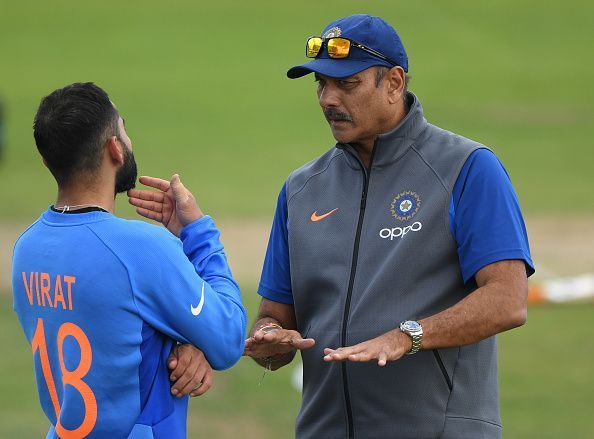
In the last few years Kohli has been on top of his game with the bat, achieving various milestones one after the other. But has playing too much cricket affected him in any way?
Kohli has a knack of taking the onus on his shoulders. Before the IPL 2019 season, there were various questions raised over his captaincy and RCB’s poor performance. And when the tournament started we could sense that Kohli’s game wasn’t as fluent as it has been all these years.
The pressure of leading RCB could well be the reason for that. He faced criticism from the fans and the media, and the captaincy did take a toll on his performance as he ended the IPL with just 464 runs in 14 matches. Those are decent numbers, but not by Kohli’s standards.
Teams like Australia and England have implemented the concept of split captaincy for years now. Currently, Tim Paine leads the Aussie Test side whereas Aaron Finch is the captain for the shorter formats. Similarly, Joe Root (Test) and Eoin Morgan (ODI) are England’s skippers for different formats. This has helped them reduce the pressure on one specific player.
Adopting a similar approach would definitely help India. If Kohli is relieved from captaincy duties in the shorter formats, it’ll reduce the mental weight that he is currently carrying. This, in turn, will help increase his international career span.
Kohli's tactical errors
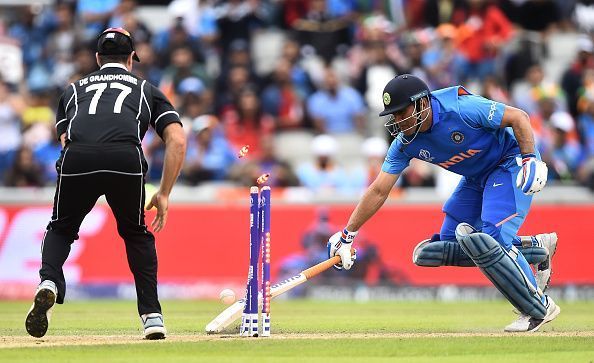
After India’s recent loss to New Zealand in the World Cup 2019 semifinal, some of Kohli’s decisions came under scrutiny. The biggest of those was the delay in MS Dhoni’s arrival at the crease.
Many believed that Dhoni’s defensive approach was the need of the hour after India lost 4 wickets with just 24 runs on the board. But captain Kohli missed a trick by not sending Dhoni upfront. That eventually cost India the match.
Another much talked about tactical blunder came in the recent IPL, when Mumbai Indians were chasing RCB’s 171 at the Wankhede and required 22 off 12 balls. Kohli had plenty of options to go to, with Umesh Yadav, Navdeep Saini and Mohammad Siraj having overs left. But Kohli decided to hand the ball to Pawan Negi, a left-arm spinner.
Negi was now up against Hardik Pandya, a batsman who feeds on spinners. It turned out to be a huge blunder as Pandya smashed Negi and won the game for MI in the 19th over itself.
Kohli’s decision to hand the ball to Negi was likely influenced by Ashish Nehra, their bowling coach. But this is turn highlights Kohli’s lack of vision in reading the game even more, along with his inability to back his decisions.
Where's the team-building approach?
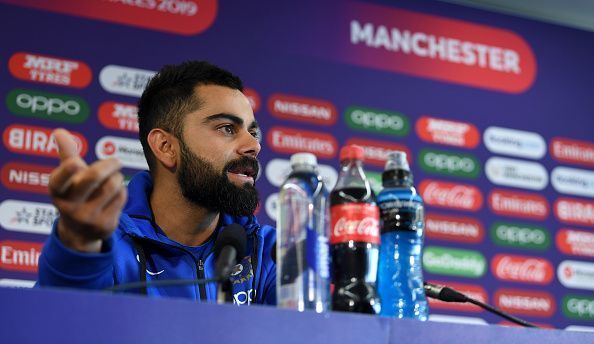
Be it a Test or a T20I, having faith in your players is the most basic requirement of a successful team. Good teams are built from a strong core. But when it comes to T20s, Kohli has failed to retain that core group of players.
Too many changes to the side is not always the answer to poor performances, something that Kohli the captain is yet to understand.
RCB made close to 20 changes in their playing XI throughout IPL 2019. Imagine being a new player in a side that keeps changing players. It creates too much insecurity among the players, especially in T20s where the game demands quick runs and quicker thinking.
Players in such a team invariably fail to deliver to their potential, which is one of the main reasons why RCB has repeatedly failed in its bid to win the trophy.
Does Rohit Sharma have a better track record as captain?
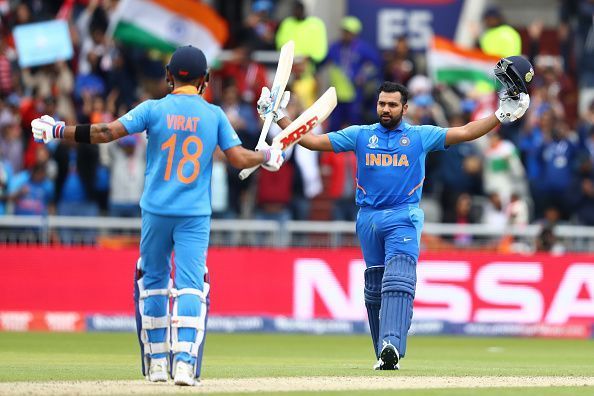
The appointment of Rohit Sharma as captain in 2013 worked wonders for Mumbai Indians. Since then, they have managed to win four titles to become the most successful team in IPL history. That also makes Rohit one of the best captains in T20 franchise tournaments.
Not just the IPL, but Rohit has also been impressive as a captain at the international level. In ODIs, he has led India in 10 matches and has won eight of them. He has also led India to 12 victories in 15 T20Is as captain.
Kohli as captain has 56 wins in 77 ODIs and 12 wins from 22 T20Is, which is still a good record. But Rohit has looked like the better captain of the two in shorter formats.
Rohit is an astute leader, is blessed with an analytical mind and is known for his planning and vision. He has shown immense maturity on the field and has maneuvered his players really well.
That is why many believe he is India’s best option going ahead in the shorter formats.
Preparation for T20 World Cup 2020 has to be the focus
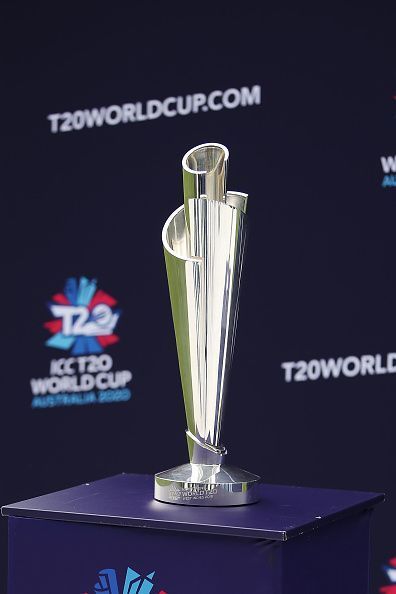
In October 2020, Australia will host the 7th edition of the T20 World Cup. With just close to one year left for the mega event, the management has to take a call on deciding the team’s future in T20Is.
The World Test Championship starts in August this year, which makes this the most opportune moment to implement split captaincy in the Indian team. While Kohli can lead the Test side, a highly successful leader in Rohit could be given the opportunity to lead the nation in the limited-overs format, especially T20Is.
With India set to play close to 20 T20Is before the World Cup, they could have given the new captain a decent amount of time to get himself in. That makes me feel India may have missed out on a good opportunity by continuing with Kohli.
Since their Champions Trophy win in 2013, India have failed to get their hands on any ICC trophy. A change in T20I captaincy could well be their key to success.